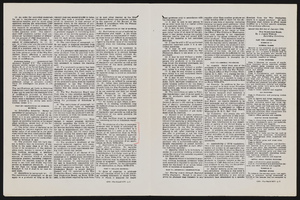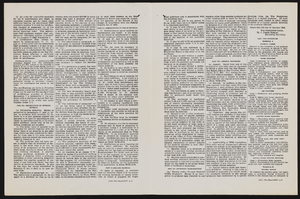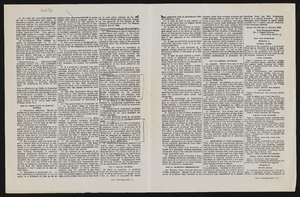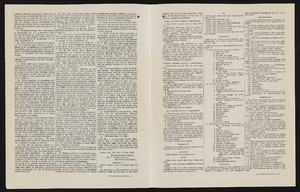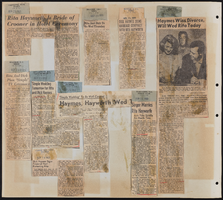Search the Special Collections and Archives Portal
Search Results
Bill Schafer Papers
Identifier
Abstract
The Bill Schafer Papers (1980-2018) contain personal and professional papers of Las Vegas, Nevada journalist and publisher, Bill Schafer, and photographs from various LGBTQIA+ related events in Las Vegas. The materials include files related to Schafer's work managing the
Archival Collection
Six Companies, Inc. Hoover Dam Photograph Collection
Identifier
Abstract
The Six Companies, Inc. Hoover Dam Photograph Collection (1931-1935), consists of approximately 400 black-and-white photographic prints contained in two photograph albums and an additional twenty-one loose black-and-white photographic prints with ten corresponding photographic negatives.
Archival Collection
Robert Woodruff Photograph Collection
Identifier
Abstract
The Robert Woodruff Photograph Collection (1900s-1970s) consists of ninety-seven black-and-white photographs of locations and events in Clark County, Nevada. Locations include Las Vegas, Henderson, and Searchlight, Nevada, as well as the Hoover Dam. The majority of the images were taken between 1934 and 1962.
Archival Collection

Transcript of interview with Harvey N. Dondero by Iskander A. Batlouni, February 26, 1981
Date
Archival Collection
Description
Text

Transcript of interview with Ron Lawrence by Dennis McBride, June, July and August 1997
Date
Archival Collection
Description
Ron Lawrence is one of the busiest people in the gay community, so I want him to know how much I appreciate his reserving time for me so that I could complete this oral history interview. The importance of his work toward the well-being of the gay community in Las Vegas cannot be measured, and much of what he's accomplished and otherwise made possible will live long after he leaves us. With Ron's consent to this interview, our knowledge of Nevada's gay history is greatly enriched and our record preserved.
Text

